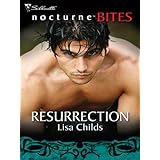 |
| Image Courtesy: Oprah.com |
Regularity in action often turns the act
into a habit and the habit is always capable of sustaining itself into time.
Great many self-emancipation gurus contempt habit and
ask people to move on and do things that are out of their regular rhythm and
comfort zones. There is a certain truth about what they say. Especially, for a
writer, it will do her great good if she prepares herself to experiment with
the daily, the mundane, the spiritual, and the fantastic.
Even writing
these words—fantastic and spiritual gives me goose flesh. Such is the power of
the fantastic and the spiritual upon human consciousness. But in order to
experiment with these out-of-the-ordinary-experiences, a writer must have a
strong control over the craft. In this article, I am focusing on nothing else
but how to manage this hold on one’s craft.
It
is an art in itself.
In order to hold
onto one’s craft, one must be artistic enough to know that it takes the
understanding of the rhythm of the art to do this. The rhythm indicates
regularity. Regularity is the consistent interaction with a focused intention
towards a cause.
Regularity with
some intervals in its practice is rhythm.
To write is to
follow the rhythm one’s mind allows one to be comfortable at within the
premises of the art.
How one follows,
one’s cause depends on individuals and also on the craft they follow. For a
writer, she should decide the frequency of practicing their art in consideration
with what their art wants from them, what time, what attention, what diligence.
In the case of
writing, it wants from the artist—everything.
Sustaining
frequency is very important in developing style and craft. In order to achieve
frequency, a ‘habitualization’ of
the craft is crucial. Turned into a habit, the craft of telling stories will
accompany the frequency, unaffected by the interventions of the outside
world—the nagging family, the demanding wife, the short tempered boss of your
day job and a particularly bad day in the coffee house.
But how does one
achieve this? How can a habit be useful tool for a writer?
As one can see,
in cases of human metabolic activity such as the activation of salivary glands
at the sight of food items and the initiation of hunger at the usual lunch
time, that habits can leave such tremendous impact upon us. They govern our
responses both physically and mentally. Salivary glands in their daily action
indicate this very truth. The ejection of saliva is both a physical and mental
action. In this manner, if a writer habituates his writing activity, the act as
such can flow uninterrupted at the precise time or manner that the writer
practices daily. At least, the mental and physical preparedness can precede the
real act of writing.
Still, it is a matter of debate whether creativity is time bound
or if it could be habitualized.
Perhaps, it is
not.
Hemingway said there are no great writers, but only great
re-writers. This means, you have a chance if you have a draft, although not
much ‘creative’ in its appearance or impact, to think about and
depend on in your writing journey. The life of an uncreative story ends in the
editor’s waste bin. But for a blank page, there is no life at all.
You can catch up with him in Facebook too.













